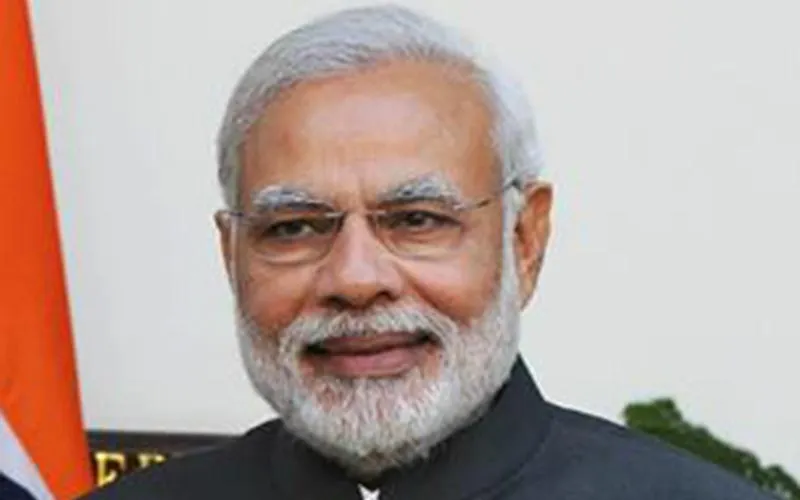-
CENTRES
Progammes & Centres
Location

"It is convenient to say the confusion over the National Security Advisor (NSA) level talks is the result of a fitful and unpredictable Pakistan policy on the part of the Narendra Modi government. However, this is both true and untrue.
There is no doubt the Modi government's approach to Pakistan in the past 15 months has seen shifts. It has oscillated between no engagement and placing red lines that were difficult to defend, between agreeing to Foreign Secretary level talks prematurely (in May 2014 itself) and a strong and - in strictly military terms - disproportionate response to provocations by the Pakistani army on the border.
Having said that, the current drama, and the questions about whether the Pakistani NSA will actually turn up, cannot really be blamed on the past year. For a few months now, and the Ufa (Russia) meeting of the two prime ministers reflected this, Modi has realised a certain degree of engagement is unavoidable and indeed to be recommended. If nothing else, it keeps communication lines open and reassures the international community and other SAARC countries that India is sufficiently engaged with its most challenging neighbourhood relationship.
Of course, both Modi and Prime Minister Nawaz Sharif acknowledge this is not the moment for blockbuster conversations, and that there is no domestic political capital on either side to discuss solutions to Kashmir and so on. Conditions are not what they were in the early 2000s. In Ufa, both Prime Ministers agreed to a limited engagement plan, with formal talks on terrorism in Delhi, even if other issues were mentioned in passing, as always happens when officials meet for hours. This would lead to a second meeting in a couple of months and start a series. Both sides were testing the waters.
The problem really is the Pakistani side, particularly the army, has come to realise the Indians are keen to be seen as engaging. The Pakistanis are calculating they can provoke the Indians - by firing on the border, making statements about how Kashmir must and will be discussed, and sending out invitations to the Hurriyat leadership - but that the Modi government would not want to be perceived as the spoiler yet again, and would not want to call off talks.
Essentially, the bet is the Indian side does not have the space to repeat what it did when it cancelled the Foreign Secretaries' talks in 2014, on a similar issue of Pakistani officials meeting the Hurriyat.
Why is the Pakistani army so needling Modi? It is not just about making him pay for the snubbing of a year ago. It is because conditions in Afghanistan have changed in the past year and increased Islamabad's strategic comfort. Yes, there are minefields for Pakistan as well. The announcement of the death of Mullah Omar, who Inter-Services Intelligence was claiming was in agreement with its ""peace plan"" even when he was actually dead - has weakened the Pakistani hand. It has brought into question the army's claim that it can deliver a deal between the Taliban and the government in Kabul.
Yet, this cannot take away from the bigger picture that the West and the United States have bought into the idea that the stabilisation of Afghanistan necessitates the providing of some role and influence for Pakistan. This equation was not as clear cut in, say, May 2014. As such, irrespective of whether Modi had engaged or not engaged with Pakistan from Day One, Pakistan's (and the Pakistani army's) response was bound to have changed between then and now - for reasons absolutely unrelated to India or its Prime Minister.
Through its history Pakistan's army has been tactically proficient but strategically deficient. If it insists on the Hurriyat meeting as a pre-condition to the NSA talks and the talks are called off - essentially if the Modi government calls its bluff - then how will it (the Pakistan army) explain its action? India can always make the case that it could not allow the Hurriyat to be seen as the legitimate representative of the Kashmiri people, over and above the elected government of Jammu and Kashmir and bypassing even the ruling People's Democratic Party.
On the other hand Pakistan would essentially have said it prefers meeting the Hurriyat to meeting the government of India - and has made a meeting with the Hurriyat a precondition to any meeting with the government of India on any subject. Such grandstanding may suit General Raheel Sharif, but New Delhi believes that is not an approach that finds favour with Prime Minister Nawaz Sharif, who privately admits domestic and public support for the Kashmir cause is ebbing.
Is the world going to be sympathetic to a Pakistan that turns down an invitation for bilateral talks because it would rather have a chat with Hurriyat busybodies who are anyway losing relevance? The Hurriyat was a creation of American and British diplomats in the early 1990s. Those original godfathers have long orphaned it, leaving the Pakistan army as the only foster parent.
That is why the eventual fate of the NSA talks will be decided not in Delhi, but in who wins the more important standoff between the Military HQ in Rawalpindi and the Prime Minister's Office in Islamabad. India can live to fight (and talk) another day.
Courtesy: www.ndtv.com "
The views expressed above belong to the author(s). ORF research and analyses now available on Telegram! Click here to access our curated content — blogs, longforms and interviews.